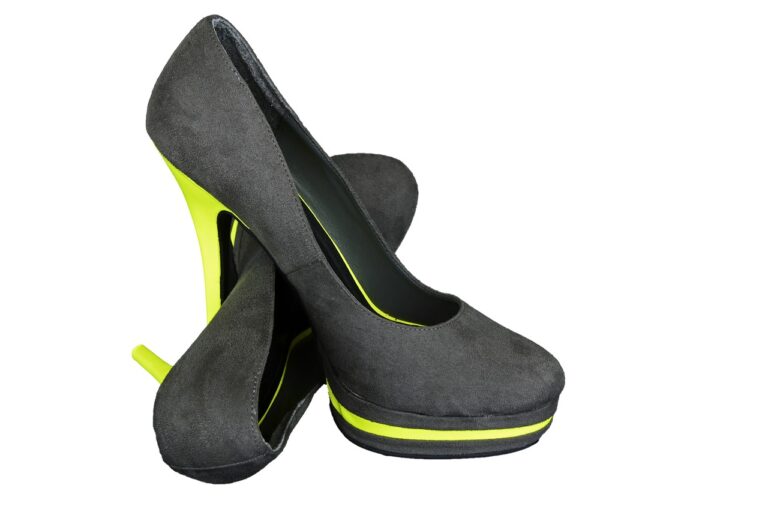The Evolution of Sustainable Fashion Certification: Betbhai9 sign up, Radhe exchange, My laser247
betbhai9 sign up, radhe exchange, my laser247: Sustainable fashion has become an increasingly important topic in recent years as consumers, brands, and governments seek to reduce the environmental and social impacts of the fashion industry. One way that brands can demonstrate their commitment to sustainability is by obtaining certification from third-party organizations that verify their practices meet certain standards. In this article, we will explore the evolution of sustainable fashion certification and how it has changed over time.
The Early Days of Sustainable Fashion Certification
In the early days of sustainable fashion certification, there were only a few organizations that offered certification programs specifically for the fashion industry. These programs typically focused on a narrow set of criteria, such as using organic or recycled materials, paying fair wages to workers, or reducing water and energy consumption in production processes. However, these early certification programs were not widely recognized or trusted by consumers, and many brands were hesitant to participate due to the costs and complexities involved.
The Rise of Global Standards
As the demand for sustainable fashion grew, so too did the need for more comprehensive and globally recognized certification programs. In response to this demand, several organizations such as the Global Organic Textile Standard (GOTS), the Fair Wear Foundation, and the Better Cotton Initiative (BCI) emerged to develop standards that could be applied to fashion brands around the world. These organizations worked with stakeholders from across the industry to create standards that addressed a wide range of environmental and social issues, from labor conditions to chemical use to waste management.
The Shift Towards Transparency and Traceability
In recent years, there has been a growing emphasis on transparency and traceability within the fashion industry. Consumers have become more interested in knowing where their clothes come from and how they are made, leading to increased pressure on brands to provide this information. In response, some certification programs have begun to incorporate requirements for supply chain transparency and traceability into their standards. This allows brands to demonstrate that their products are made ethically and sustainably from start to finish.
The Role of Technology in Certification
Technology has played an increasingly important role in the evolution of sustainable fashion certification. Digital tools such as blockchain, RFID tags, and supply chain management software have made it easier for brands to track and verify their sustainable practices throughout the supply chain. These technologies can help brands demonstrate compliance with certification standards, as well as provide consumers with real-time information about the products they are purchasing. As a result, technology has the potential to improve the credibility and effectiveness of sustainable fashion certification programs.
The Push for Circular Fashion
In recent years, there has been a growing interest in circular fashion an approach to fashion design and production that aims to create clothing that can be recycled, reused, or remade into new products at the end of their lifecycle. As a result, some certification programs have begun to incorporate requirements for circularity into their standards. These programs evaluate the design, materials, and production processes used by brands to ensure that they are aligned with the principles of circular fashion. By certifying brands that embrace circularity, these programs are helping to drive the industry towards a more sustainable and regenerative model.
The Future of Sustainable Fashion Certification
Looking ahead, the future of sustainable fashion certification is likely to be shaped by ongoing trends in transparency, traceability, technology, and circularity. As consumers continue to demand more information about the products they buy and brands strive to differentiate themselves in a crowded market, certification programs will need to adapt and evolve to meet these changing needs. This may involve greater collaboration between organizations, the development of new tools and technologies, and a continued focus on driving positive change within the fashion industry.
FAQs
Q: What is sustainable fashion certification?
A: Sustainable fashion certification is a third-party verification process that evaluates a brand’s environmental and social practices to ensure they meet certain standards of sustainability.
Q: Why is sustainable fashion certification important?
A: Sustainable fashion certification is important because it allows brands to demonstrate their commitment to sustainability, provides consumers with transparency about the products they buy, and helps drive positive change within the fashion industry.
Q: How can brands obtain sustainable fashion certification?
A: Brands can obtain sustainable fashion certification by working with accredited organizations that offer certification programs, meeting the criteria outlined in those programs, and undergoing a verification process to ensure compliance.
Q: What are some well-known sustainable fashion certification programs?
A: Some well-known sustainable fashion certification programs include the Global Organic Textile Standard (GOTS), the Fair Wear Foundation, the Better Cotton Initiative (BCI), and various programs focused on circular fashion.
Q: How can consumers verify that a brand is certified sustainable?
A: Consumers can verify that a brand is certified sustainable by checking the brand’s website for information about their certifications, looking for certification labels on clothing tags, and researching the certifying organization to ensure it is reputable.
In conclusion, sustainable fashion certification has come a long way since its early days, evolving to incorporate global standards, transparency, traceability, technology, and circularity. As the fashion industry continues to prioritize sustainability, certification programs will play an important role in driving positive change and helping brands demonstrate their commitment to a more sustainable future. Through collaboration, innovation, and ongoing adaptation, the future of sustainable fashion certification looks bright.







